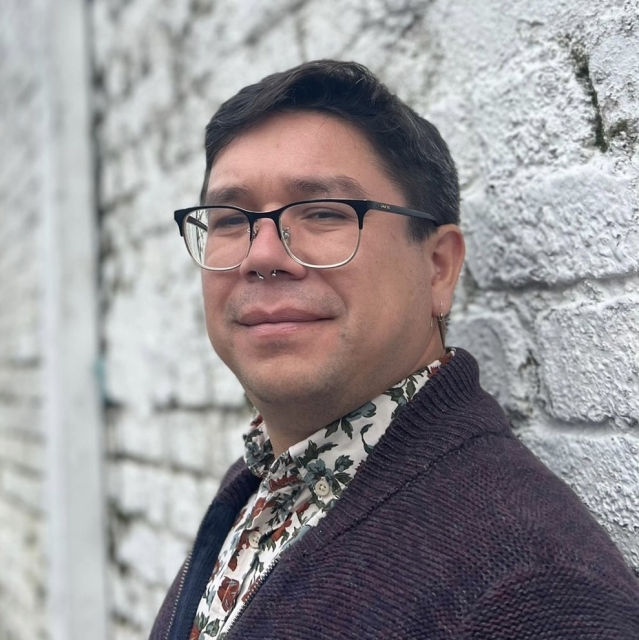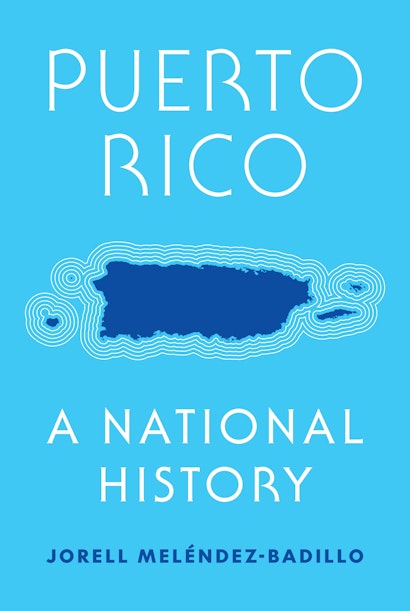Puerto Rico is a Spanish-speaking territory of the United States with a history shaped by conquest and resistance. For centuries, Puerto Ricans have crafted and negotiated complex ideas about nationhood. Jorell Meléndez-Badillo provides a new history of Puerto Rico that gives voice to the archipelago’s people while offering a lens through which to understand the political, economic, and social challenges confronting them today.
What led you to write Puerto Rico: A National History?
Growing up in Puerto Rico, I was exposed to its history from grade school onward. In college, I pursued a degree in History and continued exploring different facets of the archipelago’s history through my scholarship. As a first-generation scholar from a working-class background, my lived experiences have served as a compass for the questions that I have articulated in my academic work, as well as how I conceptualize the history of Puerto Rico.
In my coming of age, I worked in a series of fast-food restaurants, spent many sleepless nights in punk rock venues, and later migrated to the United States to pursue my doctoral degree. All these experiences led me to understand that there isn’t a single Puerto Rican experience, but many. Depending on their upbringing, social status, or geographic location, Puerto Ricans conceptualize the history of the archipelago in vastly different ways.
Seeking to write a history attentive to that plurality of Puerto Rican experiences in an accessible narrative became a challenge that I eagerly undertook. The discipline from my fast-food work, the do-it-yourself (D.I.Y.) ethos of the punk community, and my personal longing for home all paved the way for me to write a history of Puerto Rico from pre-Columbian times to the current political and historical moment.
If Puerto Rico is a territorial possession of the United States, why did you decide to frame your book as a “national history”?
Puerto Rico was initially conquered by the Spanish in 1508, and its era of Spanish rule ended in 1898 when it became a colonial possession of the United States. While Puerto Ricans gained second-class U.S. citizenship in 1917, it wasn’t until 1952 that Puerto Ricans established the Estado Libre Asociado, or Commonwealth.
Despite lacking a sovereign nation-state and enduring over five centuries as a colonial possession, Puerto Ricans have developed complex ideas of nationhood throughout their history. They have shaped an idea of the nation that is fluid, legally ambiguous, and diasporic. The book chronicles how this sense of belonging has manifested diversely, from independence-seeking insurrections to celebrating the global success of artists like Bad Bunny.
Since the 19th century, Puerto Rican intellectuals have endeavored to explore and define Puerto Rican identity. With the establishment of the University of Puerto Rico in early 20th century, these discussions shifted from private forums and cultural centers to university classrooms and publications. However, the intellectuals that dominated these conversations propagated problematic myths of racial democracy, marginalizing non-white experiences. Subsequently, in the 1950s, as Puerto Rico transitioned to a Commonwealth, the government utilized newly established cultural institutions to instill a sense of a cultural identity distinct from its political status.
The influx of nearly one million Puerto Ricans to the United States in subsequent decades posed a new challenge to the concept of the Puerto Rican nation. More recently, the fiscal crisis since 2006, and the arrival of wealthy foreigners attracted by the government’s tax exemptions have proved another turning point in which the nation has been conceptualized. In a leaked Telegram chat, a friend of former Governor Ricardo Rosselló joked of envisioning a future Puerto Rico devoid of Puerto Ricans. But, in the face of fiscal collapse and colonial neglect, Puerto Ricans are reimagining their future based on community, solidarity, and a Puerto Rico full of Puerto Ricans.
Why is the focus on the nation important for the framing of the book? Why was it important to frame Puerto Rico’s national history in a broader context beyond the archipelago’s geography?
While the book delves into the intellectual discourse surrounding Puerto Rican nationhood, it also explores how everyday Puerto Ricans have shaped diverse interpretations of national identity. In a territory lacking sovereignty, the idea of the nation has become a terrain of struggle for different social groups and classes.
The book centers the nation as an affirmation against centuries of colonial erasure and neglect. However, it also acknowledges the limitations of a solely insular perspective, situation Puerto Rico’s history within the broader context of the Atlantic world.
Since pre-Columbian times, the archipelago has been a hub of transnational exchange. Indigenous maintained communication networks, while events like the Haitian Revolution and the movements led by Simón Bolívar reverberated throughout the Caribbean. In the 20th century, US officials grappled with Puerto Rican independence activism and the influence of regional figures like Fidel Castro.
The book also highlights Puerto Ricans’ longstanding resistance to colonial subjugation, ranging from outright insurrection to subtler forms of defiance like communal support in the aftermath of natural disasters. Throughout history, Puerto Ricans have refused be defined solely by their imperial metropoles.
Throughout the book you incorporate yourself into the narrative. What are the intimate dimensions of Puerto Rico’s history?
My journey in researching and writing Puerto Rico’s history reflects the deeply personal and painful nature of our collective experience. Looking at our history is a means of comprehending the root causes of contemporary challenges such as frequent power outages, widespread corruption, and entrenched poverty. Migration, often portrayed as a necessity, is experienced by many as a form of expulsion due to dire circumstances—a consequence of centuries of colonial rule and the perpetuation of an administrative class that reaps the benefits of the current political status.
Yet, amidst these hardships, Puerto Rico’s history is also marked by moments of joy and resistance. From the rhythmic beats of protest drums to the communal spirit embodied in dances like the perreo combativo (combative twerking), Puerto Ricans have affirmed their cultural identity both on the island and in the diaspora, resisting assimilation.
Why should people care about your book? What are some of the main takeaways?
The history of Puerto Rico yields light on an often-overlooked aspect of U.S. history: its colonial relationship with the archipelago for over a century. Paying attention to Puerto Rican history entails reckoning with how racial prejudices have shaped the legal framework governing Puerto Rico’s status today.
Beyond the implications for understanding the U.S. recent past, Puerto Rico’s history offers insights into broader Atlantic dynamics. It illustrates how historical movements and ideologies from Spain, the Caribbean, and Latin America have intersected and coalesced in the archipelago’s history, present, and future. The book also emphasizes the agency of ordinary Puerto Ricans throughout history, showcasing how they have navigated complex challenges while asserting their sense of belonging.
What can this book tell us about the future of Puerto Rico?
Conceived as future-oriented history, the book aims to provide historical context to inform the coordinates of Puerto Rico’s future, whatever it may be. While it does not offer a prefigurative guide, its exploration of Puerto Rico’s plural history serves as a guide for those seeking a more just, solidary, and decolonized future for the archipelago.
Jorell Meléndez-Badillo is assistant professor of Latin American and Caribbean history at the University of Wisconsin–Madison. He is the author of The Lettered Barriada: Workers, Archival Power, and the Politics of Knowledge in Puerto Rico.

